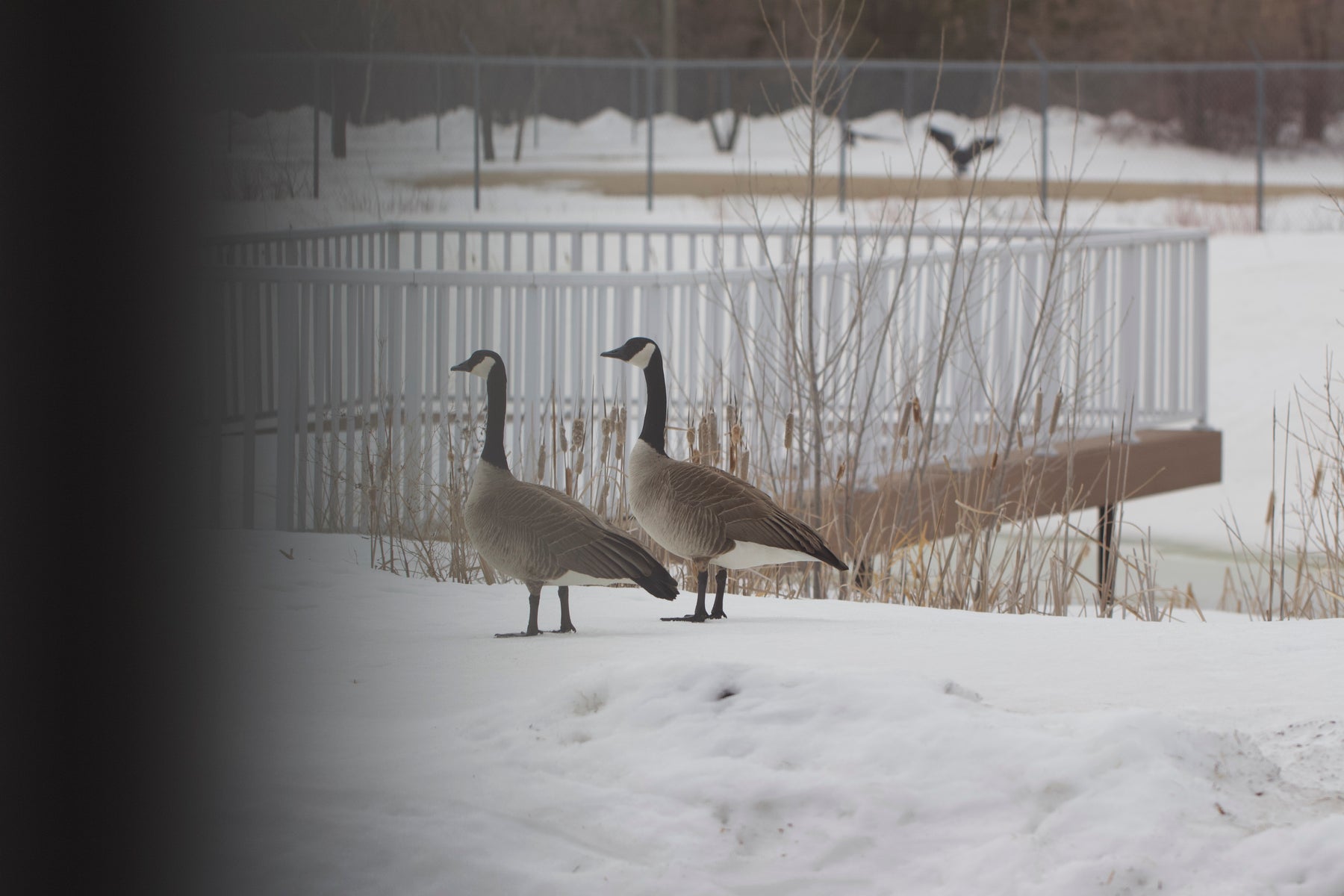
AVIAN INFLUENZA (HPAI) UPDATES
Monday, September 26, 2022
During the last week, the Wildlife Haven Hospital has seen a steep increase in the number of wild avian species with Avian Influenza. We’ve also witnessed a high number of calls to our hotline from the community regarding geese and ducks with Avian Influenza symptoms from Winnipeg and the surrounding area.
The signs are clear. The Fall resurgence we were fearing has arrived. With the fall migration, the virus has spread and is infecting a number of wild waterfowl.
At this time, we are seeing a high number of Canada Geese and Blue Winged Teal patients being affected in higher numbers than other birds. In order to protect our existing patients, our wildlife Ambassadors and to continue to serve other species of patients, we must place a temporary moratorium on those two species at this time.
Effective today, September 26th, and until further notice, Wildlife Haven can no longer accept Canada Geese and Blue Winged Teal as patients to the Wildlife Haven Veterinary Hospital. Please call the Manitoba Conservation TIP line for Assistance at 1-800-782-0076. As the situation evolves we will continually adapt our response.
We continue to work closely with our provincial and federal regulators. We have also revised our on-site biosecurity measures to protect all Wildlife Haven team members, ambassadors and patients.
Please remember, Avian Influenza is a zoonotic disease. Do not hand-feed wild birds, thoroughly wash your bird feeders weekly, never care for sick, injured or orphaned wild birds at your home and don’t handle deceased wild birds without proper PPE and guidance from Wildlife Enforcement Officers. For more information and guidance please contact the provincial TIP line at 1-800-782-0076.
---
Monday, June 6, 2022
With the very welcome warmer weather, we are also thrilled to report that the Avian Influenza outbreak in Manitoba is improving.
Since the beginning of the outbreak in early April, Wildlife Haven has taken a pro-active approach to its response to the HPAI situation, aiming to protect WH patients, ambassadors and doing our part in minimizing the impact of spread in the general Manitoba Wildlife population.
As we are now learning more about the trends and behaviour of the virus and outbreak, and seeing a slow down in the number of calls and admissions of suspect infected cases at our Centre, Wildlife Haven is moving forward with a first phase of relaxed measures. We’ve had several discussions with biologists, wildlife veterinarians and wildlife rehabbers from across Canada and northern States, along with our local regulators.
Here’s how we are adapting our operations and protocols:
- Infant ducklings, goslings, shorebirds and waterfowls can now be admitted to the Wildlife Hospital. These patients will be under quarantine protocol during their entire stay at Wildlife Haven.
- Pelicans, swans and cranes can be admitted to the Wildlife Haven hospital on a case by case basis. These patients will be under quarantine protocol during their entire stay at Wildlife Haven.
- Quarantine period for native songbirds is removed.
- Quarantine period for raptors (including owls) is reduced to 11 days.
- Wildlife Haven Ambassadors are out of isolation and are enjoying safe walks outside with their friendly staff and volunteer handlers!
- At this time, we must still restrict rehabilitation of adult geese, adult ducks, adult shorebirds, corvids, game birds, fox kits and non-native passerine.
As always, we continue extensive training with our staff team on the signs and symptoms of HPAI and the important biosecurity measures to prevent any spread. We look forward to continue to work with the province and our community as we slowly and safely get back to a more normal level of operation.
We are still learning about this virus, and will undoubtedly have more changes coming in the next weeks and months. Thank you all of the patience and understanding as we adapt and adjust to these challenges.
The HPAI crisis has been difficult for our organization and team to navigate. The support of our community has been so heart warming!! From volunteers to donors to staff, we are SO grateful to have you all here to uplift us and help the animals. Thank you!
--
Tuesday, May 17, 2022
Important Update: Bird Feeders & Bird Baths
We have learned much about Avian Influenza over the last few weeks. While it is still present in the province of Manitoba, we have re-assessed the risk to songbirds and feeder birds as being low.
The good news: with regular, bi-weekly cleaning and proper maintenance, bird feeders can be used once again! This includes hummingbird feeders and bird baths. If you have chickens or game birds, please refrain from putting feeders back up as poultry are very susceptible to Avian Influenza.
-
We recommend cleaning your feeders once per week with a diluted bleach solution (1 part bleach, 9 parts water) and allowing time to completely dry before use. When cleaning your bird feeders, be sure to wear gloves and a mask!
-
Use bird feeders which are made of either metal or plastic. Wood feeders are not recommended as proper disinfection of this material is not possible.
-
Removing bird feeders if you see many corvids (i.e. ravens, crows, magpies and blue jays) congregating around your feeder area.
--
Tuesday, April 19, 2022
A Wildlife Haven patient has been identified as one of the province’s first Avian Influenza cases. A sick Bald Eagle came into our care in Apr 10th, 2022. Following this information, and the fact that Manitoba is now in a state of declared HPAI outbreak, Wildlife Haven must adapt its operations.
Our primary focus is to protect Wildlife Haven team members, patients and animal ambassadors, and to be transparent and honest with our community. We must also work to prevent further spread within the wildlife population, protecting ALL Manitoba birds from further harm from this outbreak.
To do so, we have made the difficult decision to limit the species that will be receiving rehabilitative care at the Wildlife Haven Hospital this Spring during the active HPAI outbreak in Manitoba. Species who have proven to be most susceptible to carry and transmit the virus, with or without symptoms, will not be admitted to our hospital. These include : Waterfowl, Gamebirds, Shorebirds and Corvids. All other avian species will be subject a strict 30-day quarantine, rigorous medical examinations by our veterinarian and testing as required.
Two important factors have lead to this decision:
1 - During a period of Provincial Avian Influenza Outbreak Status (lasting 90 days following the last confirmed case), guidance from the Canadian Wildlife Services state that any bird admitted to a rehabilitation centre must complete a 30-day quarantine, without sharing air or have any contact with other patients not in its cohort or any contact with wild birds. This causes significant strain on Wildlife Haven’s campus facilities as we have limited indoor rooms, space and limited ability to adapting outdoor enclosures to ensure zero interaction with even the smallest wild songbird. We remain committed to abiding to the Federal Guidance to Wildlife Rehabilitation Facilities by the Canadian Wildlife Services.
2 - Avian Influenza has been shown to be asymptomatic in many common waterfowl species, especially ducks while still shedding and spreading the virus.
We will continue to offer compassionate euthanasia of “non-admit” species to protect others and prevent ongoing spread of this deadly disease. It has been shown that there is a 90% mortality rate in infected and symptomatic wild birds.
This decision was not taken lightly, and does not come easy to the Wildlife Haven team. We have been in consultation with rehabilitation centres across North America who have been facing similar outbreaks throughout the Spring migration, and this is the best plan of action to keep current patients and ambassadors safe, along with the general wildlife population. We are also working closely with our provincial and federal regulators.
Please remember, Avian Influenza is a zoonotic disease. While bird to human transmission has not been documented to date in North America during this year’s outbreak, it remains a risk. Please do not feed wild birds during this outbreak, never care for sick, injured or orphaned wild birds at your home and don’t handle deceased wild birds without proper PPE and guidance from Wildlife Enforcement Officers. For more information and guidance please contact the provincial TIP line at 1-800-782-0076.
We look forward to brighter days when we can open our doors to all sick, injured and orphaned Native Manitoba Wildlife to Rescue, Rehabilitate and Release them all back into nature, strong, wild and free.
For more information, please visit: Avian Influenza Fequently Asked Questions on Wildlife Haven's website.
--
--
Friday, April 14th, 2022
--
Monday, April 4, 2022
IMPORTANT:
- Please call the Wildlife Haven Hotline (204-878-3740) before bringing a wildlife patient to our campus. We will have additional instructions and precautions to keep you and other Wildlife Haven animals safe.
- Please report deceased waterfowl or raptor sightings to the Manitoba tip line: 1-800-782-0076
Wildlife Haven is facing yet another virus-related crisis. We are preparing for an avian influenza outbreak (Highly Pathogenic Avian Influenza - HPAI).
The situation is rapidly evolving. This virus is posing a very real and very severe risk to wild birds.
Throughout the last 2 weeks, the Wildlife Haven team has been working endlessly as we are facing the risk of an outbreak. From implementing robust biosecurity procedures campus wide, quarantining the resident ambassadors, and purchasing specialized medical equipment - we are doing everything we possibly can to mitigate the risk of losing our patients and resident ambassadors to this HPAI virus. Everyone is on high-alert and quite concerned.
There is no cure for Avian Influenza. If these animals don’t receive the protection they need in time, they will not survive this virus.
We are told there is a 90% mortality rate. Prevention against this deadly virus is key.
Avian influenza outbreaks have been declared in Ontario, North Dakota, South Dakota and Minnesota. With Spring migration and the contagious nature of this virus, infection of Manitoba wildlife is inevitable.
To help, please donate here.
Monday, March 28, 2022
- Please report deceased waterfowl or raptor sightings to the Manitoba tip line: 1-800-782-0076
